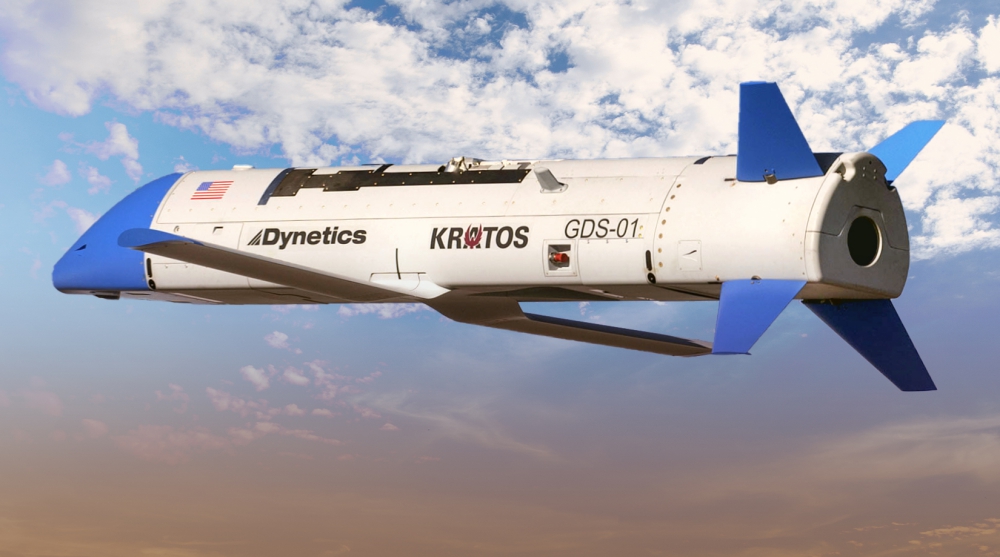, the performer for the Defense Advanced Research Projects Agency (DARPA) Gremlins program, has successfully flown its X-61A Gremlins Air Vehicle (GAV) for the first time in November 2019.
The test took place at Dugway Proving Ground near Salt Lake City, Utah. Testing operations involved one captive-carry mission aboard a TBM, Inc. C-130A and an airborne launch and free flight of the X-61A that lasted one hour and 41 minutes. The test objectives included:
- Demonstrating a successful launch of the GAV from the C-130
- Demonstrating a rate capture, wing deployment, cold engine start, and transition to stable, powered flight
- Collecting data on GAV subsystem operation and performance
- Verifying air and ground-based command and control systems, including data link performance and handovers between air and ground control
- Deploying the GAV docking arm
- Demonstrating the flight termination and ground (parachute) recovery of the GAV (demonstration system only – not part of the operational system)
The X-61A flew as predicted with no anomalies, achieving all test objectives that relate to the operational system. At the end of the mission, the engine was shut down and a drogue chute successfully deployed to terminate flight. Unfortunately, the vehicle was lost during the ground recovery sequence due to a failure to extract the main chute.
Managed out of DARPA’s Tactical Technology Office (TTO), the overarching goal of Gremlins is to accelerate the ability to perform aerial launch and recovery of volley quantities of low-cost, reusable unmanned aerial systems (UASs). This test is the next step toward the completion of the program’s Phase 3 demonstration objectives, which include a final flight test to demonstrate the ability to recover four GAVs in under 30 minutes.
“This flight marks a historic milestone for Dynetics and the Gremlins program,” said Tim Keeter, Dynetics Gremlins program manager. “The GAV flew beautifully and our command and control system kept us in total control of the GAV for the entire flight. The loss of our vehicle validates our decision to build five GAVs for Phase 3; we still have four remaining. Overall, I am proud to see all the hard work pay off and we are excited to continue this momentum towards the first airborne recovery in early 2020.”
The Gremlins team celebrated a number of milestones in 2019 including a successful flight test of the docking system in February. In March, they executed the first flight of the GAV avionics system, installed onboard the Calspan Variable Stability System (VSS) Lear Jet as a dress rehearsal for this November 2019 test. Dynetics also hosted a stakeholder’s day highlighting a live engine test in July and received a U.S. Air Force-assigned X-61A designation in August.
The Dynetics team was one of four companies awarded Phase 1 in 2016. Phase 2 was awarded in March 2017 to two of those four performers, and Phase 3 followed in April 2018, naming Dynetics the top performer.
“This flight test validates all the engineering design work, analysis, and ground testing we have performed in the past two and a half years,” Brandon Hiller, chief engineer for the X-61A said. “We have a lot of confidence in the vehicle’s performance and overall design going forward, and the telemetry data from the flight compares exceptionally well to our modeling predictions. Our team has done a superb job to achieve first flight of this unique aircraft in such a short amount of time, and we are eager to get this new capability into the hands of the DoD.”
The Dynetics Gremlins team consists of companies that represent best-in-class capabilities for their roles on the program – Kratos Unmanned Aerial Systems, Williams International, Applied Systems Engineering, Inc., Kutta Technologies, Inc., Moog Inc., Sierra Nevada Corporation, Systima Technologies, Inc., and Airborne Systems.
Source: Press Release

